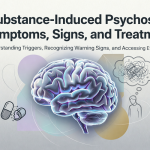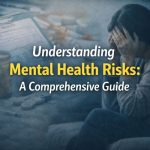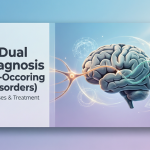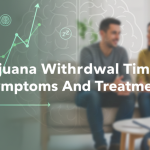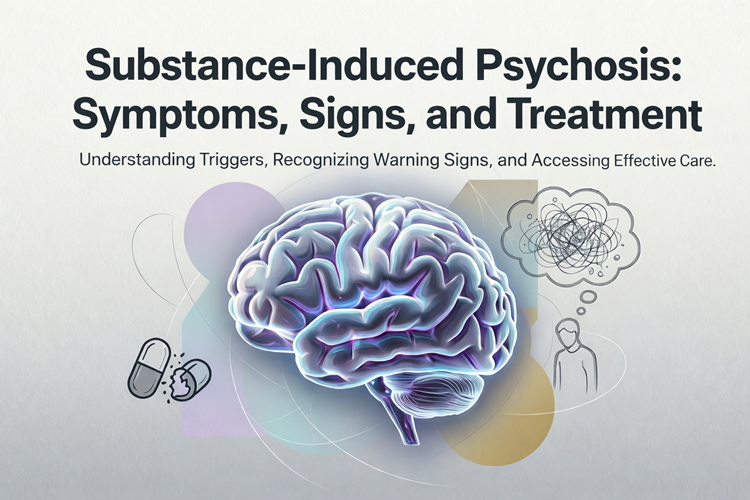Knowledge about various types of treatment of anxiety can go a long way when you are attempting to cope with excessive thoughts, physical stress, or worry about something. The level of anxiety is very high, but it is very good that it is treatable. It is the right path because the therapy for anxiety will help you feel less anxious, more stable on your feet, and more in charge of the life you lead.
Key Takeaways:
Anxiety disorders can be treated with the help of evidence-based and systematic types of therapy.
Therapy of anxiety deals with a change in thinking, mood, and behavior.
The right therapist will be able to tailor your treatment to your symptoms, your comfort and your goals.
Effective therapy highly depends on open communication and consistency.
What is Anxiety
Anxiety is a human reaction to stress, which is natural, but when it becomes persistent or overwhelming, it might result in an anxiety disorder. It may present itself as unending worry, physical tensions, obsessive thoughts, or the feeling that something bad is going to occur. Anxiety therapy provides the practical means to cope with these symptoms and learn about their reasons.
Types of Anxiety Disorders
No state of anxiety is said to exist universally. Anxiety disorders, which are widely used, include:
- Generalized Anxiety Disorder (GAD): Getting distressed about ordinary life.
- Panic Disorder: Intermittent panic attacks and anxiety of new attacks.
- Social Anxiety Disorder: Phobia of social situations or of performance.
- Specific Phobia: Fear of some more specialized things/situations.
- Obsessive-Compulsive Disorder (OCD): thoughts are intrusive and actions of a rhythmic nature are displayed.
- Post-Traumatic Stress Disorder (PTSD): This causes anxiety, leading to fear due to the trauma.
Before making my final decision on the safest type of treatment to undergo, the most fitting course of action is to be aware of what kind of anxiety I have.
100% Confidential Support is Available 24/7
No matter what you’re going through, you’re not alone. Our dedicated team is here to provide a safe, judgment-free space where you can talk openly and honestly. Whether you need emotional support, resources, or just someone to listen.
We’re here for you—completely confidential and always respectful of your privacy. Call us today!
Symptoms of Anxiety
Anxiety manifests itself in people in various forms. Common symptoms include:
- Constant anxiety or mind over.
- Vitality or agitation.
- Difficulty concentrating
- Trouble sleeping
- Muscle tension or tightness
- Dyspnea or palpitations of the heart.
- Feeling out of control
These are the symptoms that can affect you in day-to-day living and therapies for anxiety provide measures to deal with it.
100% Confidential Support is Available 24/7
No matter what you’re going through, you’re not alone. Our dedicated team is here to provide a safe, judgment-free space where you can talk openly and honestly. Whether you need emotional support, resources, or just someone to listen.
We’re here for you—completely confidential and always respectful of your privacy. Call us today!
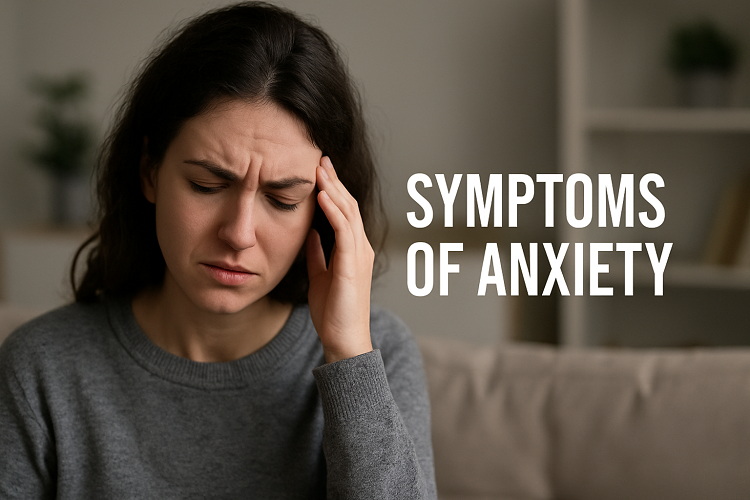
Deland Treatment Solutions
Battling with Drug and Alcohol Addition? Remember, you are not alone and we are here to help you!
Types of Therapy for Anxiety
Several evidence-based treatments have been found to help lower the levels of anxiety. The correct decision will be taken based on your personal needs and level of comfort.
Cognitive Behavioral Therapy (CBT)
CBT is one of the best-studied and successful therapies for anxiety. It assists you in detecting thought patterns that are negative and substituting such unpleasant thinking with more healthy, realistic ways of thinking. This will minimally affect the emotional stress response and will train healthier responses.
Dialectical Behavior Therapy (DBT)
Initially created to regulate emotions, Dialectical behavior therapy can assist one in coping with overwhelming emotions and learn coping skills with mindfulness, distress tolerance, emotional regulation, and interpersonal effectiveness.
Exposure Therapy
Exposure therapy also introduces you to situations or thoughts you are scared of safely and gradually, thus allowing your brain to unlearn how to respond to things it is scared of. It specifically works with phobias and OCD, and anxiety disorders.
Acceptance and commitment therapy (ACT).
ACT recommends the practice of accepting painful feelings and motivating you to follow your principles. It will also be effective for those people who struggle to escape or are perfectionists.
Mindfulness-Based Stress Reduction (MBSR)
It includes breathing and body meditation as well as meditation. MBSA has been especially helpful in the alleviation of anxiety symptoms in the body.
Psychodynamic Therapy
It is an analysis of the effectiveness of the previous experiences and current fears and it allows you to be light and thoughtful in the long run.
Anxiety is successfully treated with the right therapy for the disease in most individuals, leading to a substantial change in the emotional component and quality of life and functional daily activity.
What to Expect from Therapy
The beginning of the treatment may be frightening, and it is easy and assist. During early sessions, your therapist will familiarize him/herself with your symptoms and triggers, not to mention your goals. You are an alliance, and you will work out a scheme of treatment that suits your lifestyle. The therapy of anxiety over time will allow you to know your mind better, relieve the symptoms, and develop a lasting emotional resilience.Lorem ipsum dolor sit amet, consectetur adipiscing elit. Ut elit tellus, luctus nec ullamcorper mattis, pulvinar dapibus leo.
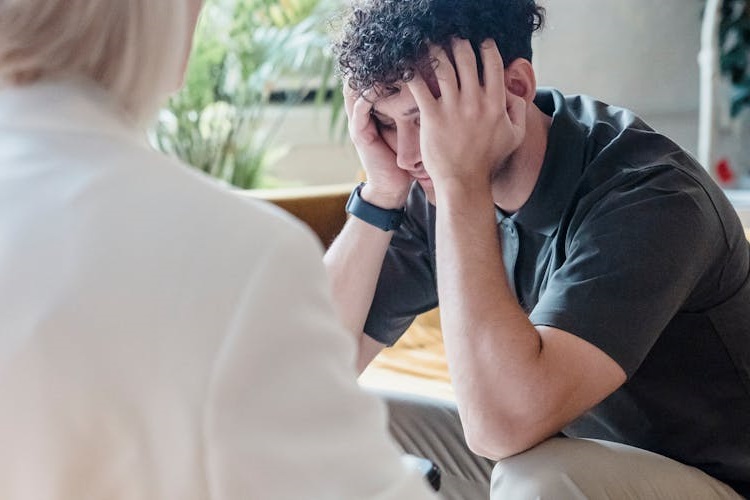
Locate The Right Therapist in DeLand
The right therapist would ensure that you feel safe, heard and understood. Identify specialists in anxiety treatment and utilize evidence-based treatment. You can ask them about their experience in the past and how they do things besides how they treat people. Through good therapeutic relationship, there is healing.
In case you are ready to think of the method of treating anxiety as the therapy, and you require the help of a caring and well-founded person, then DeLand Treatment Solutions will help you. We possess qualified clinicians who are experts in the management of anxiety with valid personalized methods that fit your needs.
Take the First Step Today
Call DeLand Treatment Solutions in order to hold a secret consultation. And there is a way to escape and you do not have to manage the anxiety on your own. We too must be cooperating to build a brighter and peace-loving future.
Frequently Asked Questions About the Therapy for Anxiety
What is the best therapy for anxiety?
CBT is considered the most effective therapy for many anxiety disorders because it helps change unhelpful thinking patterns and teaches practical skills. However, the best therapy is the one that fits your needs, comfort level, and symptoms.
What is the 3 3 3 rule for anxiety?
The 3-3-3 rule is a grounding technique. You identify three things you see, three sounds you hear, and move three parts of your body. It helps bring your mind back to the present when anxiety spikes.
What are the 5 C’s of anxiety?
The 5 C’s—Catch, Check, Change, Cultivate, and Continue—help you recognize anxious thoughts, evaluate them, shift your response, build healthier habits, and maintain progress over time.
What is the 555 rule for anxiety?
The 555 rule involves taking five slow breaths, naming five things you can see, and relaxing for five minutes. It’s a quick grounding method to calm physical and emotional symptoms of anxiety.
What are the two main treatments for anxiety?
The two primary treatments are psychotherapy (like CBT or exposure therapy) and medication prescribed by a medical provider. Often, a combination of both provides the best results.
What are 5 signs you have anxiety?
Five common signs include excessive worry, restlessness, difficulty concentrating, sleep problems, and physical symptoms like tension or rapid heartbeat.







